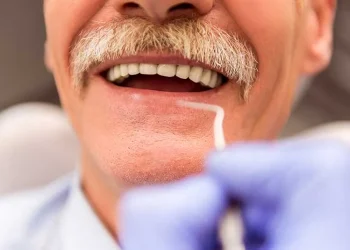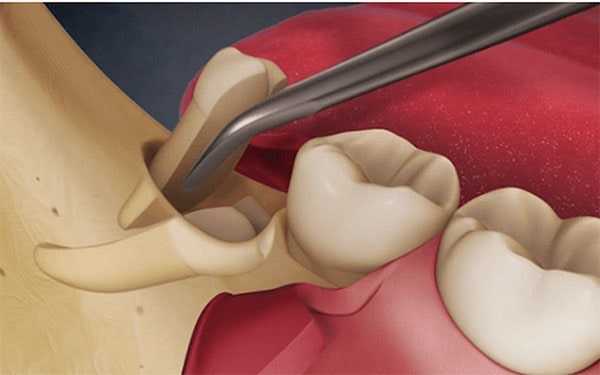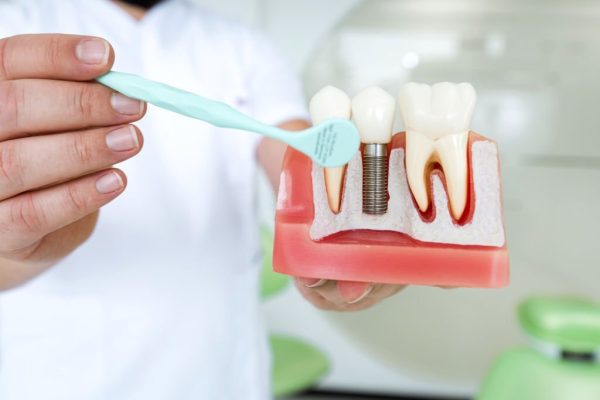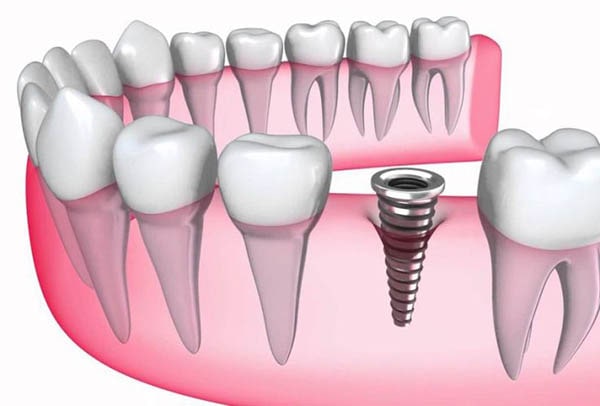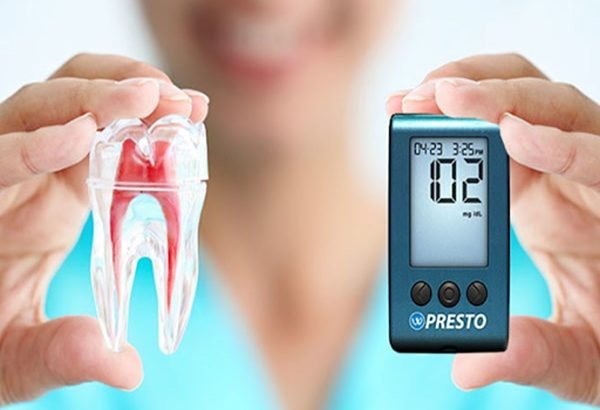It is not uncommon for pregnant women to have wisdom teeth, but this is a sensitive period. If there is pain or complications, the treatment will become more difficult. However, most pregnant women will experience pain and discomfort during this period. So should wisdom teeth be extracted during pregnancy? Is there any danger? This must have always been a matter of concern for many people.
Contents
- 1 Is it okay if wisdom teeth erupt during pregnancy?
- 2 Can wisdom teeth be extracted during pregnancy?
- 3 What should pregnant women do if wisdom teeth are painful?
- 4 Some ways to relieve wisdom tooth pain for pregnant women
- 5 The benefits of wisdom teeth extraction before pregnancy
- 6 How long should wisdom teeth be removed before pregnancy?
Is it okay if wisdom teeth erupt during pregnancy?
Wisdom teeth not only affect the health and development of the fetus, but also can cause dangerous complications. Misaligned wisdom teeth can cause pain, inflammation and pressure on both the fetus and the mother’s body. Sometimes, to ensure the safety of the mother, pregnant women have to get an abortion.
Of course, not all cases of growing wisdom teeth during pregnancy will cause such negative effects, specifically when they grow in the right place and have enough space to grow.
The case of misaligned wisdom teeth during pregnancy
When the wisdom tooth is misaligned, the crown will not be able to fully emerge like other normal teeth. Instead, they will hit the adjacent tooth, causing pain and discomfort.
The pain and discomfort caused by wisdom teeth is tiring and stressful even for normal people. For pregnant women, it will increase a lot.
When having toothache and fatigue, pregnant women’s appetite will also decrease, from which the nutrition loaded into the body will not be guaranteed to nourish the fetus.
Besides causing pain and discomfort, misaligned wisdom teeth also have potential risks of causing tooth decay, gingivitis, periodontitis…
The case of aligned wisdom teeth during pregnancy
If a pregnant woman has aligned wisdom teeth, her health will not be affected. The wisdom teeth do not collide or affect the second molar, so it was no different from a normal tooth in the arch.
However, in many cases, the pregnant woman has aligned wisdom teeth in the upper jaw but the opposite teeth in the lower jaw are misaligned. Then, it is very easy to get gingivitis.
The reason is that the gum that is lying on top of the lower jaw is impacted by the upper teeth, which will cause inflammation and create pain for the pregnant mother.
Although this is not too dangerous, and the wound will heal on its own after about 1 week, pregnant women will also have difficulty eating during this time.
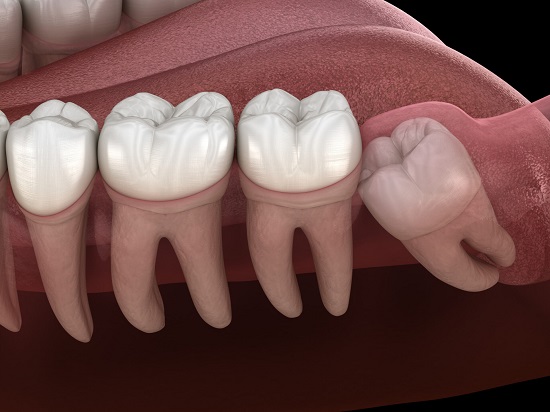
Can wisdom teeth be extracted during pregnancy?
Normally, dentists and obstetricians always recommend that wisdom teeth should not be extracted during pregnancy due to the increased risk of sepsis and negative effects on the health of the fetus. However, in cases of necessity such as complications or other medical conditions, wisdom tooth extraction may become the optimal choice.
Before deciding to remove wisdom teeth, pregnant women should consult a doctor and perform tests such as X-rays to assess the condition of the teeth and decide on the appropriate surgical method. During surgery, the doctor will use safety measures to reduce pain and the risk of infection, as well as administer antibiotics if necessary.
Note that the amount of antibiotics taken after wisdom tooth extraction may be more than that of other types of teeth. Therefore, it is best to stick to the prescribed dosage and follow your doctor’s instructions to avoid any negative effects on the health.
To extract a wisdom tooth, the doctor will have to take X-rays, inject anesthetic or anesthetic and a lot of problems afterwards.
X-rays have long been proven to be harmful to the unborn baby, if exposed long enough can cause fetal deformities or even affect overall development of pregnancy.
Similarly, anesthetics will also create instability during fetal development. In particular, many scientists also recommend not to use anesthetics or intravenous anesthetics for pregnant women. Finally, pain relievers will also directly affect the health of pregnant women and fetuses.
Therefore, in general, if a pregnant woman has wisdom teeth but does not feel any pain, doctors recommend not to pull them out. Therefore, when having wisdom tooth pain, pregnant women need to go to the dentist to check, listen to advice and absolutely do not take pain relievers without a doctor’s prescription.
What should pregnant women do if wisdom teeth are painful?
Wisdom teeth eruption is often accompanied by quite unpleasant symptoms such as pain, swelling, inflammation of the gums and difficulty in chewing. The pain comes from the destruction of the soft tissue of the gums and the pressure created by the eruption of the wisdom teeth. Although wisdom tooth extraction is not absolutely necessary during pregnancy, if the toothache is too intense, accompanied by inflammation and discomfort, the procedure may be considered during the 4th to 6th month of pregnancy.
This stage is considered safe because the fetus is growing steadily and dental procedures can be performed safely. However, to ensure absolute safety, pregnant women should look for good, experienced and dedicated dentists.
In case of painful wisdom teeth in the first 3 months or the last 3 months of pregnancy, what should pregnant women do? Accordingly, pregnant women should schedule a time to visit a dentist to control their overall oral health and find the best treatment.
In particular, during this period, pregnant women are often not allowed to use pain relievers, antibiotics or conventional wisdom tooth extraction methods. Instead, the dentist will guide other safe pain relief measures, helping the pregnant mother no longer have to suffer from discomfort, avoiding affecting the spirit and daily activities.
Some ways to relieve wisdom tooth pain for pregnant women
Before taking pain relievers or removing teeth, pregnant women with wisdom tooth pain can still relieve pain at home by following some simple methods below.
Relieve wisdom teeth pain for pregnant women with cold compress
Cold compress or applying ice is a safe method for pregnant women because it does not use any drugs. Cold compress also does not cause side effects or complications for pregnant women, helping to avoid unwanted risks.
More importantly, this is also a very effective way to relieve wisdom tooth pain. The cold from the ice cubes will temporarily numb the nervous system in the area being applied, reducing pain and swelling in the cheeks.
The method of applying ice is very simple and convenient. Pregnant women just need to take a few small ice cubes from the refrigerator, wrap it inside a soft towel and apply it to the swollen and painful cheeks for about 10-15 minutes.
Relieve wisdom teeth pain for pregnant women by gargling with salt water
Gargling with salt water is an effective way to clean the mouth and reduce the growth of harmful bacteria, thereby helping to ease the uncomfortable feelings for pregnant women when wisdom teeth erupt.
These are the main benefits of the above method:
- Kill bacteria: Salt water is alkaline, increasing the pH level in the mouth. This environment will make it difficult for bacteria to survive and grow. Therefore, gargling with salt water will help kill bacteria and reduce inflammation in the wisdom tooth area.
- Relieve pain: Wisdom tooth pain is often accompanied by unpleasant pain. Gargling with salt water can temporarily relieve pain, bring comfort to pregnant women thanks to its anti-inflammatory and antiseptic properties that will eliminate harmful bacteria.
To properly and effectively gargle with salt water, you can follow these steps:
Step 1 – Prepare the brine solution: Mix one teaspoon of non-iodized sea salt in a cup of warm water. When combined with water, salt forms a dilute brine solution. Note that avoid mixing too much salt because it is easy to damage the oral mucosa.
Step 2 – Gargle: Take a sufficient amount of salt water solution in your mouth and gargle for about 30 – 60 seconds. Make sure the saline solution touches the wisdom tooth area thoroughly.
Step 3 – Spit the solution: After gargling enough time, spit out the saline solution from the mouth.
Step 4 – Gargle with clean water: After gargling with salt water, rinse your mouth with clean water a few times.
Use fresh garlic
Using fresh garlic to relieve wisdom tooth pain during pregnancy always brings many benefits. Fresh garlic is a rich source of antioxidants, which help protect cells from the effects of free radicals. In the composition of garlic, we can find many antioxidants and anti-inflammatory substances, which are important components that help reduce inflammation and reduce pain effectively.
Besides, to improve the effectiveness, combine garlic with ginger. Because ginger contains a lot of anti-inflammatory and antibacterial active ingredients, it is very suitable to support pain relief.
How to use fresh garlic to relieve pain caused by wisdom teeth:
Step 1 – Prepare the ingredients: First, prepare a fresh garlic and some fresh ginger.
Step 2 – Crush garlic: Using a knife or blender, crush the garlic until it becomes a puree.
Step 3 – Mince fresh ginger: Next, mince some fresh ginger into small pieces.
Step 4 – Combine garlic and ginger: Once you have the minced garlic and ginger, press them together.
Step 5 – Apply on painful swollen areas: Put the pressed garlic and ginger mixture on the painful swollen area caused by wisdom teeth.
You should apply the above method twice a day, for 10 to 15 minutes each time.
The benefits of wisdom teeth extraction before pregnancy
Pregnancy can be controlled, but wisdom tooth eruption or pain is something we cannot control. Therefore, removing wisdom teeth before pregnancy will bring many benefits, specifically as follows:
Avoid wisdom tooth decay during pregnancy
Wisdom teeth are located in a position that is difficult to reach and clean, which increases the risk of developing tooth decay. In particular, during pregnancy, women often tend to be more tired and stressed, which can make oral care become neglected. Not to mention, the difficulty in moving during pregnancy also makes oral hygiene more difficult.
Another cause is that hormonal changes in the body during pregnancy also affect oral health, increasing the risk of wisdom tooth decay.
Having wisdom tooth decay during pregnancy can have negative effects on the health of the pregnant woman and the baby. Here are the main effects that wisdom tooth decay can cause:
Pain and discomfort: Wisdom tooth decay causes the gum tissue around it to become swollen, painful, and sensitive. This makes eating difficult and even causes pain in the long run.
Inflammation: When wisdom tooth decay is not treated in time, it can cause severe inflammation and spread to the surrounding area. Oral infection will cause severe pain, swelling, tooth abscess, bad breath, fever, etc.
Avoid harm to the fetus
Wisdom tooth extraction before pregnancy is a solution to completely eliminate the risk of having to undergo dental intervention during pregnancy. This way, pregnant women will not have to get wisdom teeth removed during pregnancy as well as suffer from uncomfortable pain.
The main reason we should think about having wisdom teeth removed before pregnancy is to avoid affecting the fetus. Wisdom tooth pain can cause stress and put pressure on a pregnant woman’s body. In addition, during the procedure, it is difficult to avoid the use of anesthetics, X-rays or pain relievers. All of which not only affects the health of the pregnant woman, but also can affect the fetus.
Even after giving birth, pregnant women do not need to worry about having wisdom tooth pain while breastfeeding. This is because having wisdom teeth removed before pregnancy completely eliminates the possibility of having to have dental intervention related to wisdom teeth during breastfeeding.
How long should wisdom teeth be removed before pregnancy?
In fact, there is no regulation on the specific time of wisdom tooth extraction before pregnancy. If you are planning to get pregnant and your wisdom teeth need to be removed, it should be done as soon as possible.
Several factors to consider when to have wisdom teeth removed include the current state of your oral health, the complexity of the procedure, and the time it takes to recover from the extraction. It is important to consult a dentist to assess your oral health and receive appropriate instructions.
However, this is only part of the preparation for pregnancy. Maintaining a healthy lifestyle, including a healthy diet, proper dental care and regular dental visits, is also important.
Through this article about wisdom teeth during pregnancy, Home Dental has answered the problems many people are worried about. It can be seen that the extraction of wisdom teeth during pregnancy is very complicated, with many potential risks. Therefore, the best way is to remove them before pregnancy to ensure the safety of the health of the mother as well as the fetus.


